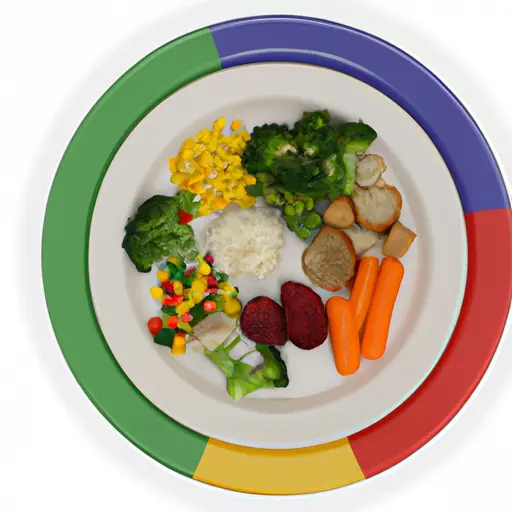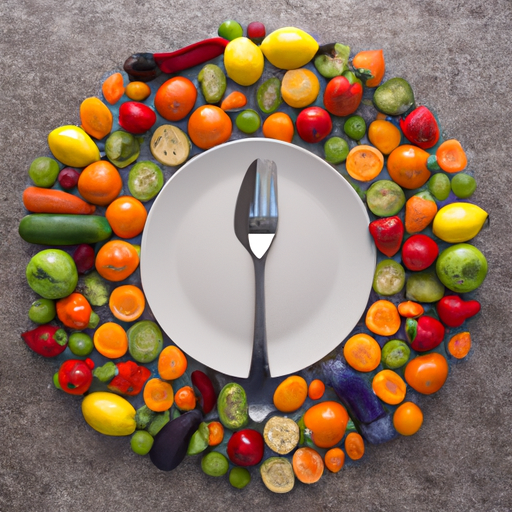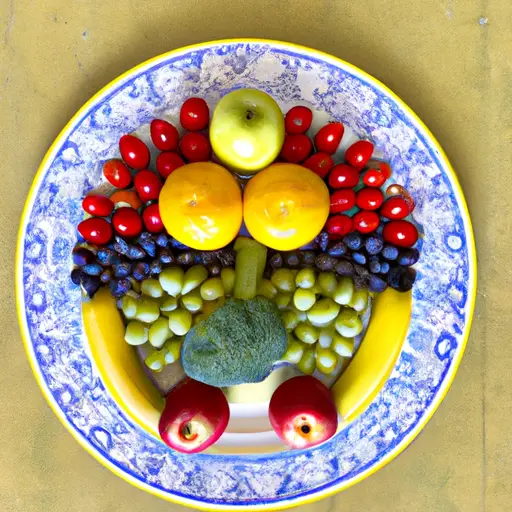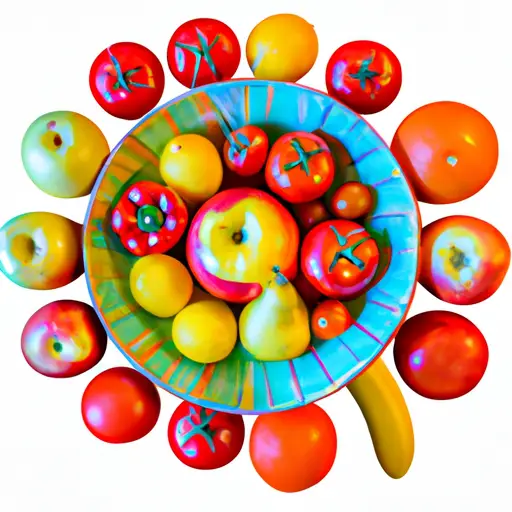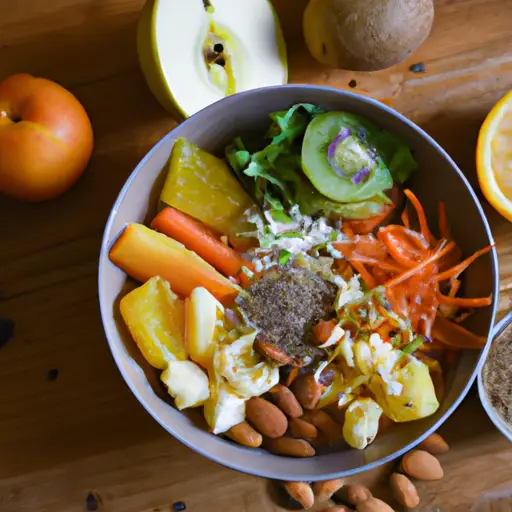Importance of Portion Control in Food
Hangry No More: How Portion Control Can Transform Your Health
Hi there, I’m here to talk about portion control. Now, you may be wondering, what the heck is that? Simply put, portion control involves managing the amount of food you consume during meals.
But why is this important, you may ask? Well, let me tell you – portion control can have a huge impact on your health! For starters, it can help with weight management. By controlling portions, you can prevent overeating and consuming excess calories, which can lead to weight gain. But that’s not all.
Did you know that portion control can also lower your risk of diabetes? By eating the right amounts of food, you can regulate your blood sugar levels and prevent spikes that can lead to insulin resistance. Plus, when you eat the right portions, you’re more likely to get the nutrients your body needs to stay healthy.
But let’s be real – controlling your portions can be tough. Sometimes you just want to eat that entire pizza all by yourself! Plus, it can be hard to measure exactly what a “portion” of food is. But fear not, because I’ve got some tips and tricks to make portion control a breeze.
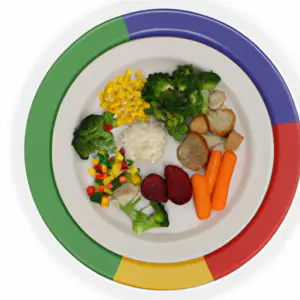
For example, try using smaller plates to trick your brain into thinking you’re eating more food than you actually are. Avoid mindless eating by turning off the TV and focusing solely on your meal. And when in doubt, read those food labels to get a better sense of serving sizes.
So there you have it – the power of portion control. With a little bit of effort and some handy tricks, you can transform your eating habits and improve your overall health. Bon appétit!
Why the Right Portions Matter: Perks You Don’t Want to Miss
As someone who’s struggled with weight management and balancing their diet, I can tell you that paying attention to portion control is worth the effort. It’s not just about keeping the numbers on the scale in check, but there are also health benefits that come with eating the right amount of food.
Keep the Scale in Check
One of the most obvious benefits of portion control is weight management. When you’re eating more than your body needs, extra calories are stored as fat and can lead to weight gain. By sticking to the appropriate portion sizes, you can prevent overeating, maintain a healthy weight, and lower your risk of weight-related health issues such as heart disease and high blood pressure.
Lower Your Risk of Diabetes
Eating more than your body needs could also increase your risk of developing type 2 diabetes. By controlling your portions, you can keep your blood sugar levels stable and prevent insulin resistance due to consuming too many carbs or sugary foods. Reducing your risk of developing diabetes also means reducing your risk of developing related health issues like neuropathy, vision loss, and cardiovascular issues.
Boost Your Nutrient Intake
Another perk of portion control is improved nutrient intake. By eating the right amount of food, you can ensure that you’re getting a balanced mix of protein, carbs, fats, vitamins, and minerals, which your body needs to function correctly. Overeating on unhealthy foods can deprive your body of essential nutrients. By controlling your portions with healthy portions of fruits, vegetables, and whole grains, you’re improving your overall health.
It’s a Challenge, But You Can Make It
Of course, controlling your portions isn’t easy, and it comes with its challenges. The temptation to continue eating large portions can be strong, but knowing why it’s essential to stick to proper serving sizes can help motivate you. Another challenge is measuring the appropriate servings of food, especially when you eat out or are served large portions. However, with the right tools and practice, it can be done.
Tips for Practicing Portion Control
To make portion control more comfortable and achievable, try using smaller bowls or plates for your meals. This simple trick will help your brain recognize that you’re getting enough food as your plate will look fuller. Avoid distractions during meals like TV, mobile phones, or books, and pace yourself while eating. Read food labels to learn the serving sizes and keep track of the amount you eat. Make your cravings part of your plan, and don’t deprive yourself; instead, make room for a small treat within your allotted portion.
In Conclusion
Learning how to eat the right portion sizes can work wonders for your physical and emotional well-being. With determination and practice, you can train your body to crave the appropriate serving sizes, and you’ll begin to see the results in no time.
The Battle of Conquering Portion Control
Let me tell you, portion control is not easy, and I know it! It’s a challenge that takes discipline, effort, and time – but the rewards are immense. However, when you’re trying to control your portions, you may encounter several obstacles along the way. Here are some challenges I have faced:
1. Temptation to Eat Too Much
It’s tough to resist the temptation to overeat, especially when we’re served with an appetizing dish full of our favourite food. But, the fact is, doing so can lead to weight gain and other health problems. It’s important to remind ourselves that our energy intake should match our energy output. That is, what we eat should be in balance with what we burn through physical activity, or basal metabolic rate.
2. Difficulty Measuring Servings
Portion control involves eating a specific amount of food that meets your body’s nutritional needs. But let’s be real—eyeballing food quantities can be extremely unreliable, and even the most skilled estimators are often way off. So how do you measure portions correctly? Weighing Ingredients is one way, and using a digital scale can be very helpful. But, if you don’t have one, using measuring cups or spoons is another good option.
Tips for Practicing Portion Control
Okay, so we know portion control is important, but how the heck do we actually do it? Here are some tips that have worked for me:
1. Use Smaller Plates
This is probably one of the most well-known tips, but it really does work. Swap out your dinner plates for smaller ones and you’ll naturally serve yourself smaller portions. Plus, it’ll look like you have more food on your plate, which can trick your brain into feeling more satisfied.
2. Avoid Mindless Eating
Ever find yourself snacking in front of the TV or mindlessly eating chips while you work? Yeah, me too. Try to avoid distractions while you eat and focus on your food. This can help you tune into your hunger cues and avoid overeating.
3. Read Food Labels
Food labels can be confusing, but they’re also incredibly helpful in determining serving sizes. Pay attention to the number of servings per container and the serving size. You may be surprised to learn that what you think is a single serving is actually two or three!
Remember, practicing portion control doesn’t mean you have to deprive yourself or never indulge. It’s about finding balance and listening to your body’s hunger and fullness cues. With a little patience and practice, it can become a natural part of your healthy eating habits.
Final Thoughts – Don’t Bite off More Than You Can Chew!
Well folks, there you have it – the ins and outs of portion control. As someone who has struggled with overeating in the past, I can attest to the benefits of eating the right portion sizes. Not only is it easier to manage your weight, but it also lowers your risk of diabetes and improves your nutrient intake.
Of course, there are challenges when it comes to controlling your portions. The temptation to eat too much and the difficulty of measuring servings can be major hurdles to overcome. But fear not – there are practical tips that can help you practice portion control on a daily basis.
Using smaller plates, avoiding mindless eating, and reading food labels are just a few simple strategies that can make a big difference. But the key is to find what works for you and to be patient with yourself. Remember, Rome wasn’t built in a day and neither is a healthy eating habit.
So, my final advice to you is this – don’t bite off more than you can chew! Start small, be consistent, and stay committed to your goals. With time and dedication, portion control will become like second nature, and you’ll be well on your way to a healthier, happier you.
Food Portioning FAQ
Why it is important to have a portion control in every recipe?
Well, let me tell you, portion control is absolutely key when it comes to eating! You see, when we don’t pay attention to our serving sizes, we may end up consuming way more than our body needs. This can lead to weight gain, overeating, and even health problems like heart disease and diabetes. That’s why it’s important to measure out our food and pay attention to the recommended serving sizes on nutrition labels. Plus, controlling our portions can help us feel more satisfied and prevent us from feeling overly full or sluggish after a meal. Trust me, taking the time to measure out your portions will pay off in the long run for your health and well-being. So, be mindful of your serving sizes and make sure you’re not overdoing it at mealtime. You’ll thank yourself later!
What is the health benefit of portion control?
Portion control is essential for maintaining a healthy lifestyle. When we consume too much food in one sitting, it can lead to overeating and weight gain. The health benefit of portion control is that it helps us regulate our calorie intake, which is crucial for weight management. By controlling our portion sizes, we can reduce the risk of obesity and other health issues such as diabetes, heart disease, and high blood pressure.
For me, portion control is not just about limiting my food intake, but also about making better food choices. By choosing nutrient-dense foods such as fruits, vegetables, whole grains, and lean protein, I can maintain a healthy weight and reduce the risk of chronic diseases. Additionally, by controlling my portion sizes, I can still enjoy the foods I love, such as pizza or ice cream, in moderation.
Some experts suggest using smaller plates and bowls to trick the mind into thinking that we are consuming a larger portion than we actually are. Others recommend measuring out portions using measuring cups or a food scale. These methods can be helpful for those who struggle with overeating and portion control.
Overall, portion control is a crucial component of a healthy diet. By monitoring our portion sizes and choosing nutrient-dense foods, we can maintain a healthy weight, reduce the risk of chronic diseases, and improve overall health and well-being.
